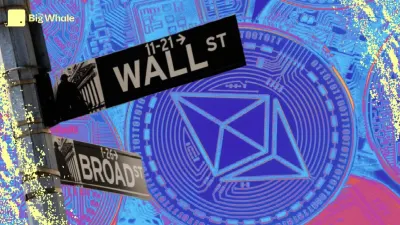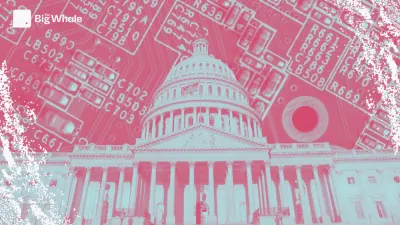MiCA had not even been voted on when Christine Lagarde, President of the European Central Bank, was already calling for a second draft of the European text in June 2022. This new text would aim to harmonise the rules on crypto-assets between the member countries of the European Union, but this time for decentralised finance (DeFi).
DeFi is a generic term for peer-to-peer (P2P) financial services - without intermediaries - on public blockchains.
"MiCA was designed to regulate centralised intermediaries, such as exchange platforms, to force them to adopt regulatory structures close to those of traditional financial institutions," explains Sébastien Praicheux, partner at Norton Rose Fulbright. He adds: "DeFi has been excluded from the scope of MiCA so as not to put a sudden brake on innovation".
As the text prepares to come into force on 1 January next (with an 18-month transitional period for players already registered), many points remain very unclear. In particular, the question of the 'decentralisation' of companies and projects - a crucial issue since it will determine whether a company is exempt from MiCA (Markets in Crypto-Assets) by benefiting from the 'DeFi exemption'.
This situation is all the more worrying given that there is currently almost no official documentation on the subject, and therefore no clear legal definition of decentralisation. This raises fears of potential unpleasant surprises for many players.
Are DeFi interfaces part of MiCA? The European Securities and Markets Authority (ESMA) is the most active European body on this subject. "The European securities regulator is convinced that there are unregulated intermediaries acting as gateways to decentralised applications and automated markets such as Uniswap. As a result, some of them could finally fall within the scope of MiCA," a Brussels-based lobbyist tells The Big Whale.
Clearly, start-ups developing interfaces to access the protocols' smart contracts could be targeted.
Read also - MiCA: a headache for the European regulator
Last April, Rune Christensen, founder of MakerDAO (now Sky), expressed public concern about a possible requirement to obtain a MiCA licence. "This would make it impossible to access DeFi interfaces as we know them today", he was alarmed.
According to our information, several exchanges have taken place in recent months between the Danish regulator and representatives of Uniswap and MakerDAO to obtain guarantees on this subject.
"The main objective for decentralised projects like Sky is to ensure that the regulator makes a clear distinction between decentralised blockchain technology, such as DeFi, and centralised products [...] So far, the European Union has understood this," Rune Christensen was pleased to say in an interview with The Big Whale.
If the ACPR (Autorité de contrôle prudentiel et de résolution) and the AMF (Autorité des marchés financiers) published in 2023 recommendations to provide a framework for DeFi, it was the report from the Danish Financial Supervisory Authority (DFSA) that went the furthest by proposing on 25 June a kind of "decentralisation test".
"This is the most precise report on the subject that we currently have," says Marina Markezic, president and co-founder of EUCI (European Crypto Initiative), one of the largest associations defending the sector in Europe.
According to the Danish financial authority, the interfaces that can be excluded from the scope of MiCA are described as "private", meaning that at all times the user retains full control over their assets or the orders they place via the interface.
Source: Danish Financial Supervisory Authority
The Danish regulator states that the entity behind a protocol "cannot be considered a trading platform provider for crypto assets" if it "does not control the smart contracts" making up the protocol. Typically, these contracts are controlled by a community via a governance token.
"In its assessment of decentralisation, the Danish regulator also analyses the distribution of governance tokens to check that no narrow group exercises centralised control," explains Stéphane Daniel, a partner at d&a partners, the firm advising Morpho Labs, creator of the Morpho Blue .
This could prove problematic, as the industry's leading DAOs are often influenced by a central group or figure. "This is particularly evident in the case of MakerDAO, where Rune Christensen carries considerable weight," confides an investor in the sector.
Thus, according to the DFSA's logic, protocols such as Uniswap or Morpho seem out of danger, having largely limited their influence on the DAO of their protocols. Players such as Aave or MakerDAO should also benefit from the famous "DeFi exemption", even if this "guarantee" is less permanent.
Note that the DFSA also appears to exempt so-called "decentralised" stablecoins from the legal framework designed for their centralised versions (which came into force in summer 2024).
According to the supervisor, the latter can only be covered by MiCA if "the issuer is identifiable [...] i.e. a legal entity behind the issue to which the associated rights can be addressed". This would therefore exclude projects such as Sky's DAI or Angle's EURA and USDA. "There remains a significant legal risk," emphasizes Pablo Veyrat, co-founder of Angle Labs.
According to decentralized finance actors like Angle, a strict application of MiCA could lead to a European market where there would only be "centralized or fully decentralized" players like Morpho. "Others might decide to leave, particularly for the United States," explains Pablo Veyrat. Freshly re-elected as President of the United States, Donald Trump explained during the campaign that he would pursue a pro-crypto policy.
No regulation of DeFi in the coming months What are the next deadlines in Europe? At the end of the year, the European Commission will publish a report on activities such as staking and NFTs (non-fungible tokens), currently not covered by MiCA. Although many lobbyists thought that this report would largely define the contours of future DeFi regulation, this hypothesis now seems less likely.
"The chances of the Commission taking decisive action on DeFi quickly are currently low," explains a source in Brussels. However, it does warn on one point: "It is possible that ESMA will seek to unite national regulators to apply MiCA to entities potentially linked to DeFi, as shown by concerns about interfaces."
However, ESMA does not have the power to legislate. It can only advise on the consistent application of existing rules in the EU.
For now, many European representatives consider that the scale of the DeFi market and the complexity of its structures do not justify "the regulatory resources needed to regulate it adequately and proportionately."
In addition, there are already regulatory frameworks, such as the pilot regime, allowing institutions to experiment on blockchain. Although traditional finance is still a long way from DeFi, it is starting to take an interest, as shown by the participation of BNP Paribas, the eurozone's leading bank, in Kriptown's Series A , a start-up aiming to launch the first tokenised stock exchange.
"Regulation must be gradual, we must be careful," stresses one industry player. "The risk would be to excessively hinder the sector compared with the rest of the world. Let's start by applying MiCA, many aspects of which remain unclear, and then we'll see."





